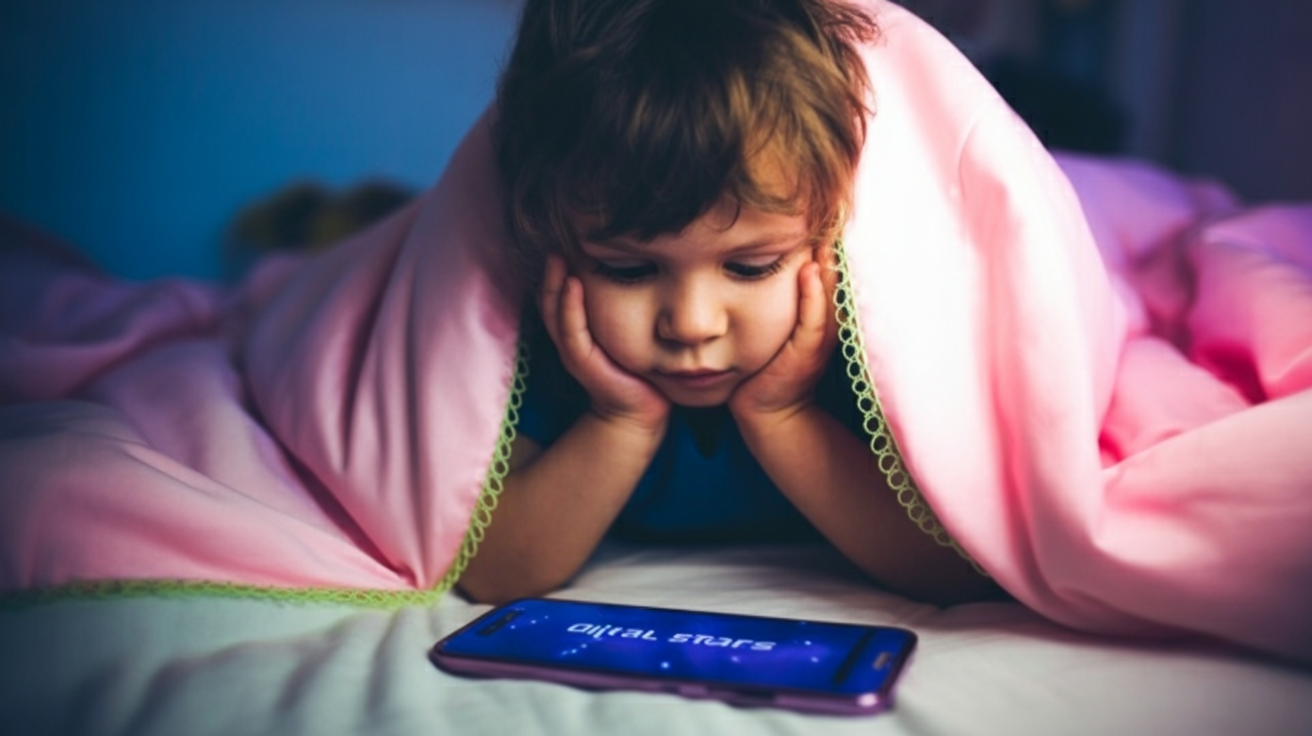10 Reasons Why Screen Time is Bad for Little Learners

Screens are everywhere these days. From TVs to tablets and phones, children see them all around.
Screen time can seem like a fun way for little learners to play and learn, but spending too much time in front of screens can lead to issues.
Parents and teachers often worry because young children’s brains are still developing quickly. Excessive screen time may hinder the development of essential skills, such as speaking, playing, and concentrating.
It will offer key reasons to help parents and caregivers make informed choices and provide helpful ideas for spending quality time with young children.
Understanding Screen Time and Its Impact
Screen time means any time a child spends looking at a screen. This includes watching TV, playing games on tablets, or using smartphones.
Not all screen time is equal to other kinds of learning or play for little learners. Experts have clear ideas about how much screen time is suitable for young kids to maintain their health and development.
-
What Counts as Screen Time for Little Learners: This includes watching TV shows and videos, playing apps or games on tablets or smartphones, as well as time spent on computers.
-
How Screen Time Differs from Other Learning or Play Activities: Screen time is often passive, meaning kids watch or listen without much movement or interaction. In contrast, play and hands-on learning involve touching, moving, talking, and exploring the world.
-
Expert Recommendations on Screen Time Limits: Organizations such as the American Academy of Pediatrics recommend no more than 1 hour of high-quality screen time per day for children aged 2 to 5.
Reasons Why Screen Time Is Harmful

Screen time may seem like an easy way to entertain kids, but excessive use can cause several problems, especially for young learners.
Here’s a deeper look at why limiting screen time is so important:
1. Delays in Language Development
Young children learn language most effectively through talking and listening in real-life situations. Screens don’t provide the back-and-forth interaction that helps build vocabulary and conversation skills.
-
Less interaction: Kids watching videos don’t get the chance to ask questions or hear varied responses.
-
Limited vocabulary: Passive screen time often repeats the same words and phrases, limiting new learning.
-
Slower speech skills: Without regular practice, children may struggle to speak clearly and confidently.
2. Reduced Attention Span
Fast-paced shows and games can make it challenging for kids to focus on slower tasks, such as reading, playing with toys, or following instructions.
-
Overstimulation: Bright colors and rapid changes grab attention, but they don’t encourage sustained focus.
-
Difficulty concentrating: Children who are accustomed to fast-paced screen content may struggle with schoolwork that requires patience.
-
Shorter playtime: Screen time can replace longer, more imaginative play, which helps build focus and problem-solving skills.
3. Less Physical Activity
Screens keep kids sitting and inactive, which limits muscle and bone growth. Active play helps kids build strength and stay healthy.
-
Increased risk of obesity: Sedentary behavior is linked to weight gain and related health issues.
-
Poor motor skills: A lack of movement delays skills such as balance, coordination, and fine motor control.
-
Lower energy: Kids who sit too much may feel sluggish and less motivated to explore.
4. Poor Sleep Patterns
Using screens before bed disrupts the body’s natural sleep rhythms. The blue light emitted tricks the brain into thinking it’s still daytime.
-
Delayed sleep onset: Children take longer to fall asleep after exposure to screens.
-
Lower sleep quality: Screens can reduce deep, restorative sleep, which is important for growth.
-
Daytime tiredness: Poor sleep leads to crankiness, trouble focusing, and low energy during the day.
5. Weaker Social Skills
Face-to-face interactions help children learn how to share, cooperate, and understand their own feelings as well as those of others. Screen time can reduce opportunities for these lessons.
-
Less practice reading emotions: Screens don’t show real expressions or tone of voice.
-
Fewer social interactions: Time spent alone with screens means less time playing with peers or family.
-
Challenges in communication: Kids may struggle with conversations or teamwork as they grow.
6. Behavioral Problems
Excessive screen time has been linked to increased irritability and difficulty managing emotions. It may also contribute to hyperactivity or aggression in some children.
-
Overstimulation effects: Rapid screen changes can make kids feel restless or anxious.
-
Poor self-regulation: Without learning to cope with feelings in real situations, children may act out.
-
Increased frustration: When screen time is suddenly taken away, some kids experience strong negative reactions.
7. Vision Problems
Extended screen use strains the eyes of young children, who are still developing, causing discomfort and potential long-term issues.
-
Eye strain and dryness: Focusing on close screens can cause eye fatigue.
-
Reduced blinking: Children blink less during screen time, which can lead to dryness and irritation.
-
Risk of myopia: Studies suggest that heavy screen use may increase the risk of nearsightedness in children.
8. Exposure to Inappropriate Content
Without careful monitoring, children can encounter violent, scary, or confusing material online or in apps, which can affect their emotions and behavior.
-
Fear and anxiety: Exposure to scary images or sounds may cause nightmares or worries.
-
Imitation of bad behavior: Children may copy actions they observe that are unsafe or unkind.
-
Confusion about real vs. pretend: Young children can struggle to understand what is fantasy and what is real.
9. Limits Imagination and Creativity
Screen-based activities often show finished stories or games, leaving little room for children to imagine, invent, and create independently.
-
Passive learning: Watching doesn’t encourage problem-solving or original thinking.
-
Less pretend play: Kids need open-ended toys and activities to build creativity.
-
Fewer storytelling opportunities: Real play helps develop language and ideas in unique ways.
10. Replaces Quality Parent-Child Time
Time spent on screens can cut into moments when parents and children bond through reading, talking, and playing together.
-
Missed emotional connection: These moments build trust and security.
-
Less chance to teach values: Parents model behavior and social skills during shared activities.
-
Weaker family relationships: Screens can create distance instead of closeness.
Balanced Activities for Healthy Early Childhood Development

Young children grow best when they have a mix of activities. Play, talking with others, and learning by doing are all key for healthy development.
These things help their brains, bodies, and social skills grow strong. However, excessive screen time can interfere with these important experiences.
How Play, Social Interaction, and Hands-On Learning Support Growth
- Playing helps kids practice problem-solving, creativity, and motor skills. Talking and interacting with family and friends helps build language and social skills.
- Hands-on activities, like drawing or building, help children understand the world through touch and movement.
Why Too Much Screen Time Can Replace These Critical Activities
- When children spend a significant amount of time on screens, they may miss out on opportunities to explore, engage in conversation, and engage in play.
- This can slow down learning and make it more challenging to develop skills such as attention, communication, and coordination.
Role of Physical Activity and Real-World Exploration in Brain Development
- Engaging in physical activity, such as moving around and exploring outdoors, helps build strong muscles and bones. It also encourages curiosity and helps the brain make new connections.
- These active experiences support memory, focus, and healthy emotional growth.
To Sum Up
Screen time can be enjoyable, but excessive use can hinder important learning in young children. It affects how they talk, play, and pay attention.
Parents and caregivers play a big role in guiding healthy screen habits. Setting limits on screen time and choosing high-quality programs helps keep kids safe and learn effectively.
Finding fun alternatives, such as reading books, playing outside, or doing crafts, can make a significant difference.
Try balancing screen time with active, real-world experiences to support your child’s growth. What are your favorite screen-free activities for little learners? Share your ideas in the comments below!






